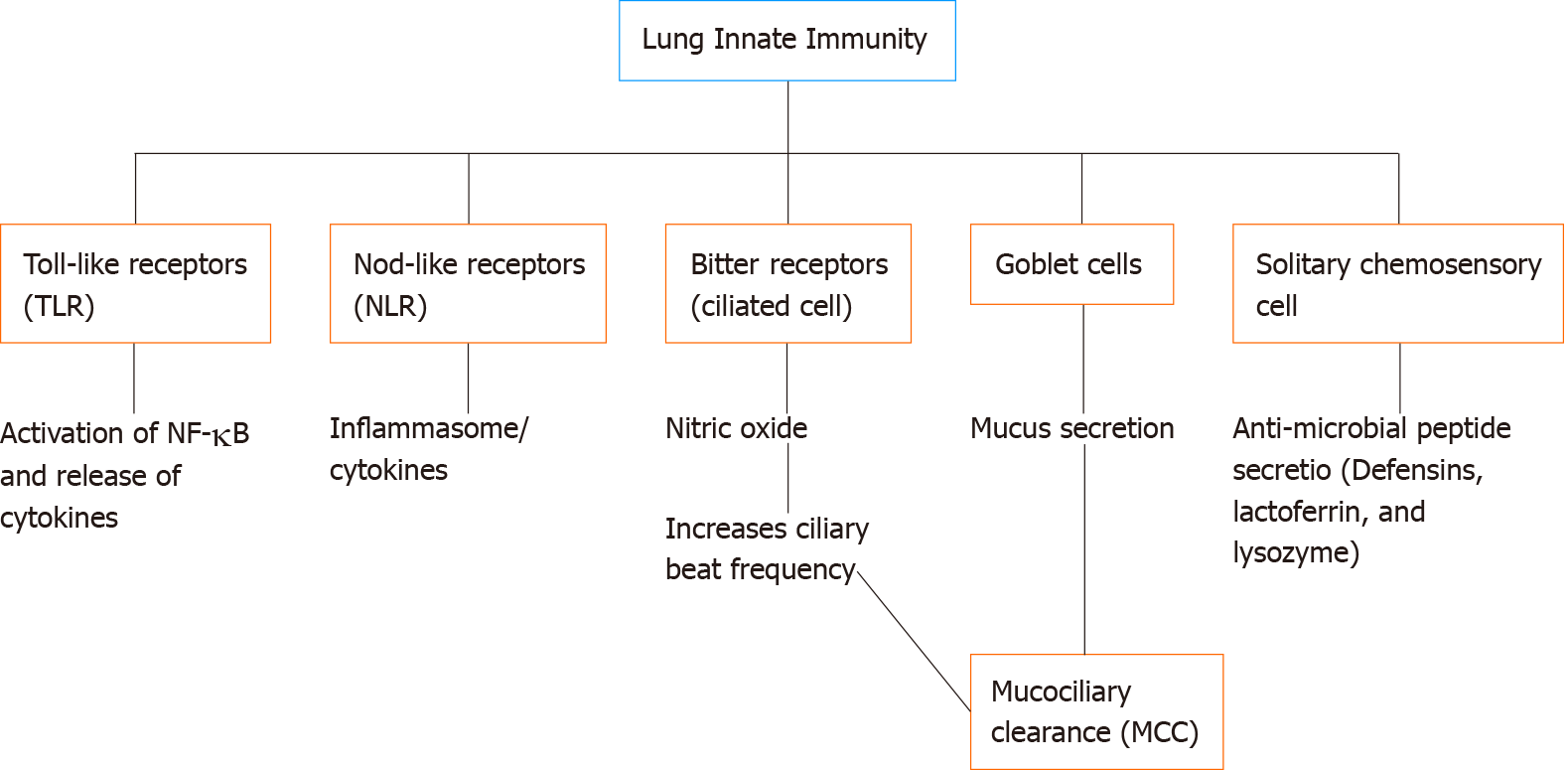Copyright
©The Author(s) 2020.
World J Biol Chem. Sep 27, 2020; 11(2): 30-51
Published online Sep 27, 2020. doi: 10.4331/wjbc.v11.i2.30
Published online Sep 27, 2020. doi: 10.4331/wjbc.v11.i2.30
Figure 3 Summarization of non-specific immune strategies in lung innate immunity.
Toll-like receptors are activated to recognize pathogen-associated microbial patterns/damage-associated molecular pattern (PAMPs/DAMPs) and activate nuclear factor-kB to produce cytokines; nod-like receptors are cytosolic receptors that can recognize intracellular PAMPs/DAMPs and can form inflammasome to either produce cytokines such as interferons or induce pyroptosis (inflammation associated apoptosis); Stimulation of bitter receptors, expressed in ciliated cells in the airways, elevates Ca2+ that produces NO which activates protein kinase G and increase ciliary beat frequency; NO can directly kill bacteria; Goblet cells produce mucus that traps pathogens and bacteria which are then eliminated out of the upper airway system through MCC; Activation of bitter receptors in solitary chemosensory cells can increase intracellular Ca2+ that can produce antimicrobial peptides.
- Citation: Gopallawa I, Lee RJ. Targeting the phosphoinositide-3-kinase/protein kinase B pathway in airway innate immunity. World J Biol Chem 2020; 11(2): 30-51
- URL: https://www.wjgnet.com/1949-8454/full/v11/i2/30.htm
- DOI: https://dx.doi.org/10.4331/wjbc.v11.i2.30









